Any long-time fisherman will tell you that you need to know what the weather is going to be, to have a successful day (or night) of fishing.
This seems like a strange thing to be aware of from the perspective of fishing success, but there is plenty of evidence that suggests fish are sensitive to changes in weather.
These changes in weather can have an impact on fish physiology and feeding patterns, so it is true?
Do you need to know what the weather will be before you head out for a day on the lake?
Barometric pressure is the measure of air pressure within the atmosphere. Barometric pressure is measured in millibars. This represents the changes in movement within a barometer, decreases in millibars indicate low pressure, and increases in millibars will indicate a change to higher pressures.
What is the Best Barometric Pressure for Fishing?
Low Pressure – Under 29.70 inches of Mercury. Slow fishing conditions, go with what you know at this time.
Medium Pressure – Around 29.70 to 30.40 inches of Mercury. This is 10005.757 to 1029.462 millibar as indicated in the previous paragraph. These are fair weather conditions and favorable fishing.
High Pressure – Around 30.50 and clear skies permits medium to slow biting in deeper water. These are less desirable conditions.
Rising Pressure – As weather begins to clear up after a storm, fishing can improve.
Falling Pressure – Best fishing conditions, right before a storm.
Dedicated bass fishers will have a barometer at home and will keep a close eye on barometric pressure, so they can hit the lake as soon as the best barometric pressure for bass fishing arrives.
Do Bass Bite Better In Low Or High Pressure?
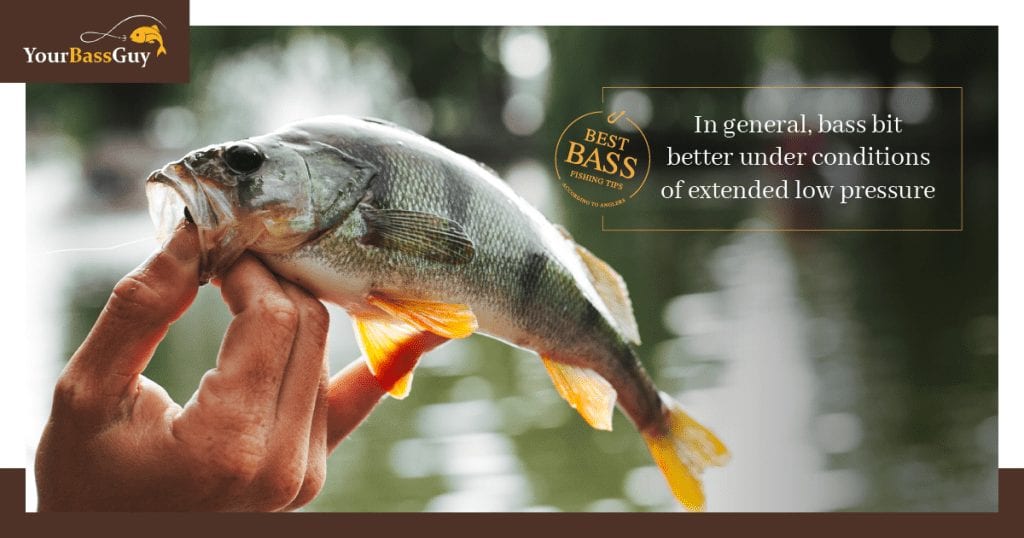
This is an interesting question, and one that cannot be well supported by science, but can be well supported by years and years of observation by keen bass fishers.
The answer to this question, is that in general, bass bite better under conditions of extended low pressure.
However, that doesn’t mean that you can’t have a successful day of fishing when the pressure is high.
You just need to adjust the gear you use and your fishing techniques.
It is helpful to understand why fish are more active during extended periods of low pressure so that you can be more successful on the lake.
It isn’t well understood by scientists, but it is believed that changes in barometric pressure have an impact on a fish’s swim bladder.
During times of high barometric pressure, there is inadequate body pressure placed on the swim bladder, creating an uncomfortable feeling for fish.
Uncomfortable fish, are fish that are less likely to eat.
However, when the barometric pressure drops, there is less body pressure on the fish’s swim bladder, and this creates a comfortable feeling for the fish.
Larger bass are more sensitive to these changes, and are the first to take cover as barometric pressure drops.
In order to create more pressure within the swim bladder, bass will head to deeper parts of the lake where they can gain more gas pressure in their swim bladder.
At these depths, there isn’t a lot of prey foods for bass to feed on, and the discomfort they feel from the change in pressure in their swim bladder will cause bass to feed less.
This doesn’t, however, mean you shouldn’t fish on a high-pressure day. If you’ve seen a few days in a row of high pressure, be prepared with heavyweights, bright lures, and some patience.
Hungry bass in deep water will be happy to eat, if “food” is available.
The best times to fish for bass are during days of extended low pressure, because a bass feels good, and is ready to eat.
However, there are a couple of other times that bass will be happy to eat and catchability is good.
Gradual changes in barometric pressure can be good times to fish since there isn’t a dramatic change in the pressure on the swim bladder.
If a storm is approaching, and pressure is slowly dropping, you can have a successful day of fishing.
Additionally, many bass fishing experts have noted that another great time to fish is just before a storm front moves in.
Fish seem to be sensitive about weather changes (we’re not sure why) and will feed vigorously just before a big storm system moves in.
Bass seem to know that they will not be eating much for a few days, so they fill up as much as possible before a front arrives.
Does Barometric Pressure Affect Bass Fishing?
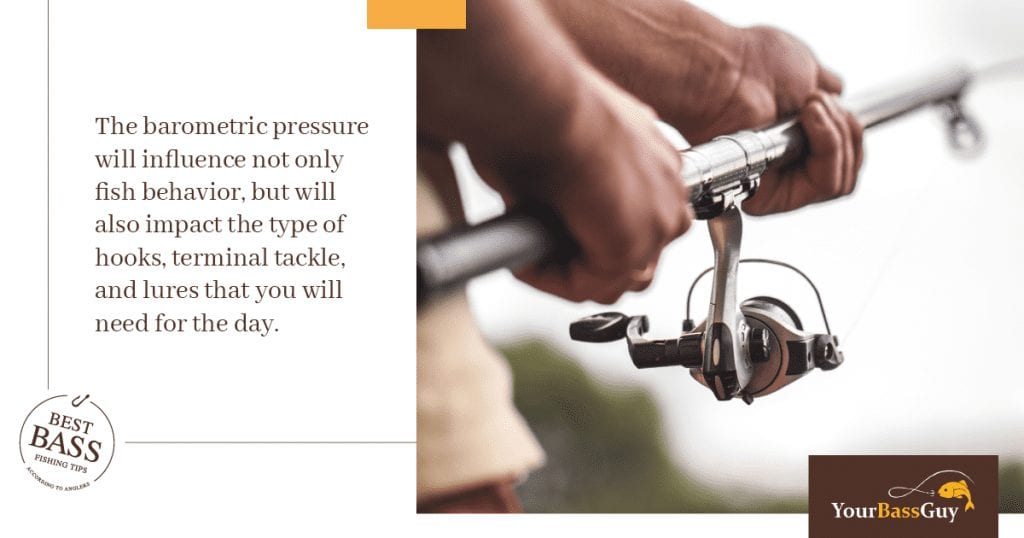
Barometric pressure definitely has an impact on bass fishing.
It is important that you are aware of the barometric pressure before you head out to fish for the day.
The barometric pressure will influence not only fish behavior, but will also impact the type of hooks, terminal tackle, and lures that you will need for the day.
It is important to mention that there isn’t a lot of strong scientific research about the impacts of weather.
Changes in barometric pressure to support the assertion that barometric pressure has a direct impact on bass fishing or any other types of fishing for that matter.
Much of our understanding of fish behavior during changes in barometric pressure is based on observations of fish behavior by fishing enthusiasts.
It is difficult to study this theory simply because, the scientific method needs to have barometric pressure isolated as the single, influencing factor, and well, that just isn’t possible to do.
So, we rely on years and years of fishermen, watching fish, and gaining information about fish behavior and barometric pressure through careful observation.
With all of that said, the answer appears to be “yes”, barometric pressure does have an impact on bass feeding behaviors, and therefore their catchability.
It is not fully understood as to what occurs in the bass physiology during changes to barometric pressure.
It is believed that there is some impact on a fish’s swim bladder when the barometric pressure changes, which will cause them to change their feeding patterns and their location within the water column.
For you, the bass fisherman, this means that you need to be fully aware of the weather for the day. If the weather is crummy and pressures are low, you may want to get out on the water and bring along different gear.
High pressure does create some challenges, so have the patience or wait for a nicer day.
You’re going to be most successful when the weather has been nice for a few days, or just before a storm front arrives, so do be aware of your weather conditions.
Does Humidity Affect Bass Fishing?
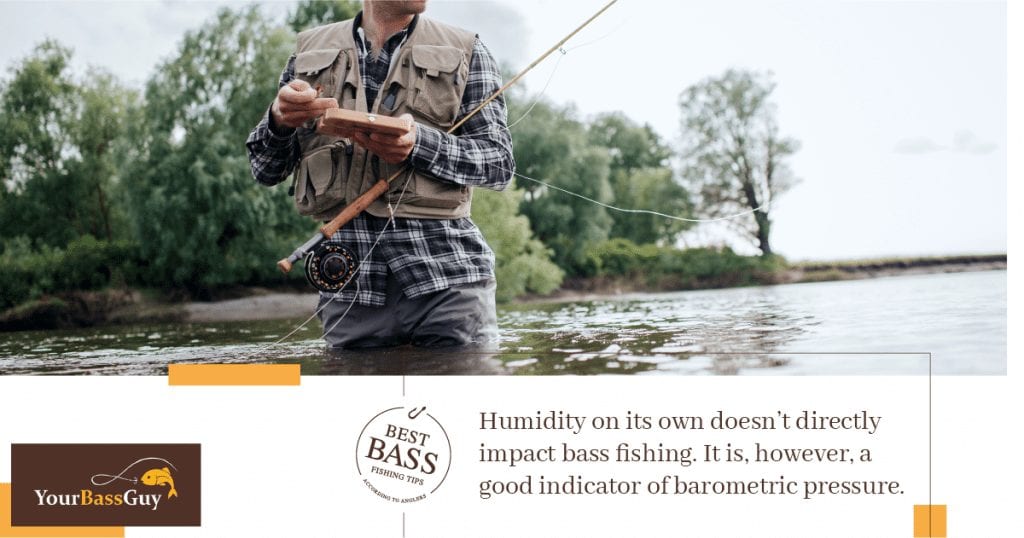
Humidity on its own doesn’t directly impact bass fishing. It is, however, a good indicator of barometric pressure.
Low barometric pressure and high humidity seem to go hand in hand.
So, it is fair to assume that if you are experiencing a time of high humidity, the barometric pressure will be low, and therefore fishing for bass will be really good.
The exception to this rule is that if the humidity is so high that it is raining, and has been raining for a few days, you may not be able to have a successful, deep lake bass fishing experience.
Another sign and condition to look for are on days when humidity is lower. These days generally have higher barometric pressure and are not ideal for bass catchability.
Fish will be more active during high humidity, low barometric pressure days, so you have a higher likelihood of more bites, and bigger fish.
Weather can play a big part in bass fishing success. It is important that you are aware of the weather conditions throughout the day in order to have a good catch.
Experienced bass fishers, such as Michael Iaconelli, will tell you that for the best chance of catching “the big one”, fish during extended days of low pressure or just before a storm approaches.
And be safe out there too! Remember, water and lightning don’t go together, so when the weather gets nasty, head in for the day, and wait for the clouds to clear for another day of great fishing.

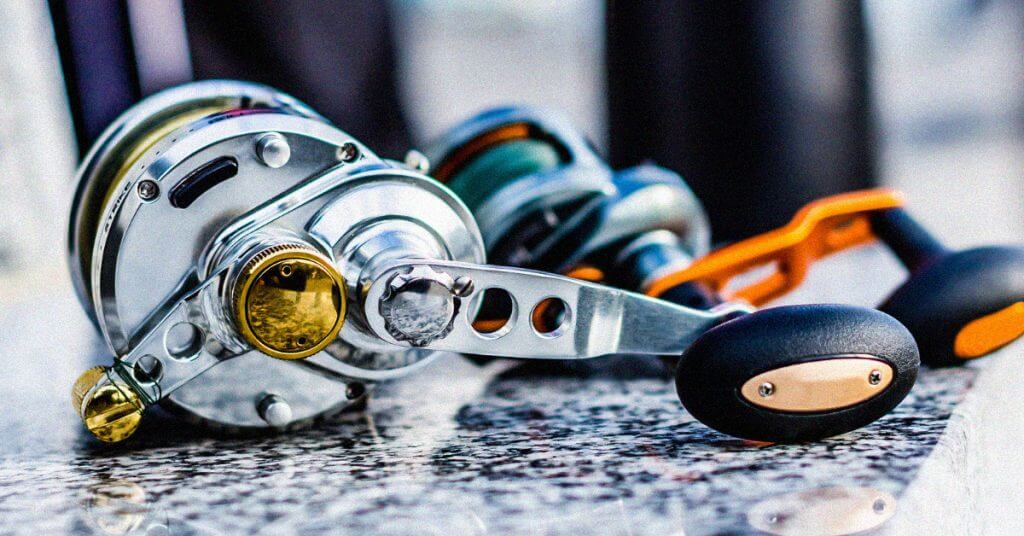
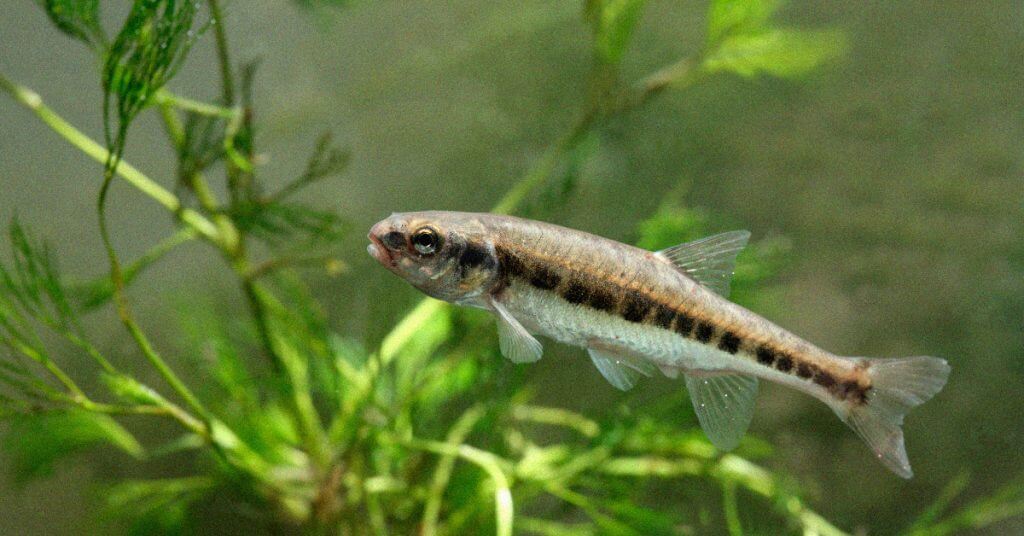
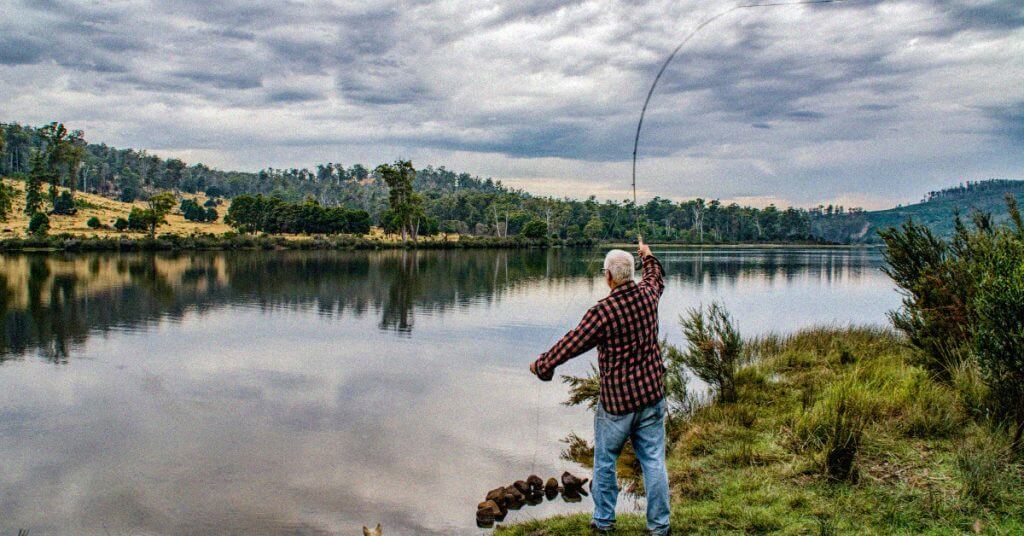
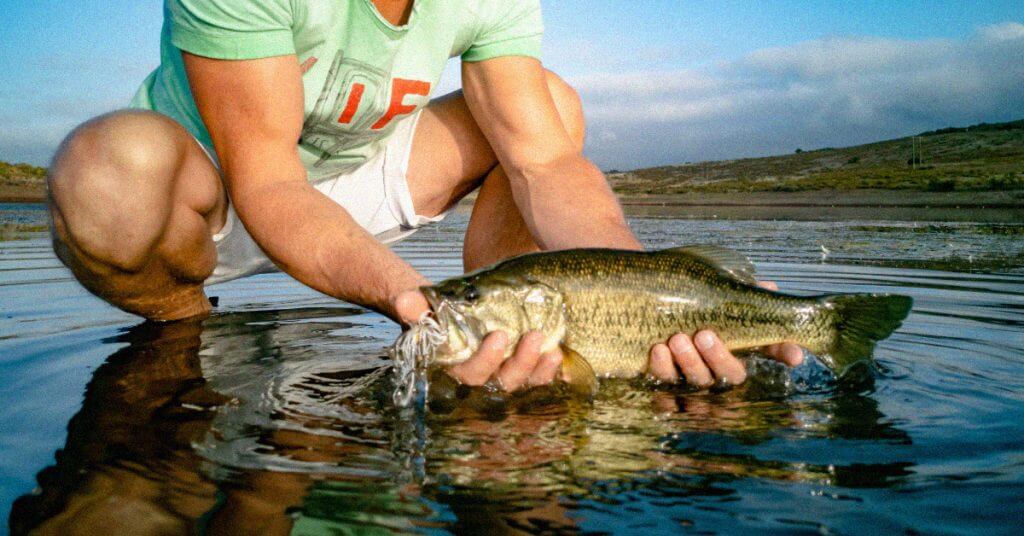
I was told that bass fishing was good on low-pressure days and not on high pressure front
You are absolutely right, Fredrick. I dug up some more research and it seems that low-pressure days are ideal. I went ahead and updated the article with the corrected information. Thanks for bringing it to my attention :)
Whats high??low pressure readings?? In doing some homework. It stated under 30. Is considered low presdure? Any infor greatly appreciated
Hey Michael,
You are correct! 30 inches is considered normal pressure whereas anything under 30 is considered low.
I have always heard that regardless of pressure fish will bite better on a falling barometer and bite less on a rising barometer.
Also the old saying:
When the wind is in the East the fish bite least.
And when the wind is in the west the fish bite Best.
Seems to hold true as when a high pressure approaches and passes the pressure usually is building and wind is easterly and as wind shifts to west is falling.
I’m going to start bass fishing, before fronts move through,low pressure, wish me luck, Rodman reservoir ,🙏
The calm before the storm produces
Big bass opportunity. Fish slow
Big bass stake a feeding area.
And don’t move much.